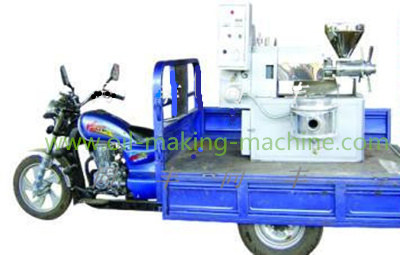
Author:Jintai网络部 Modified date:2024-4-4 8:09:51

The Korean soy industry has undergone significant transformations over the years, adapting to technological advancements and consumer demands. One such innovation that has revolutionized the sector is the introduction of small mobile oil press machines. These compact and versatile machines have empowered local farmers, small-scale entrepreneurs, and the broader agribusiness community, fostering progress and contributing to a more dynamic soy industry in Korea.
Traditionally, soybean oil extraction was a process dominated by large-scale industrial facilities that required significant infrastructure and capital investment. This centralized approach limited the potential for smaller players to participate directly in the market, creating a gap between producers and consumers. However, with the advent of small mobile oil press machines, the landscape began to shift.
These machines offer several key advantages that have propelled their adoption across the Korean soy industry. Firstly, they are highly portable and can be easily moved to different locations, allowing farmers to process soybeans close to where they are grown. This reduces transportation costs and ensures that the extracted oil retains its freshness and nutritional value.
Secondly, small mobile oil press machines are cost-effective. They require a lower initial investment compared to traditional industrial presses, making them accessible to a wider range of business owners. This democratizes the production process and encourages entrepreneurship within the soy industry.
Thirdly, these machines are user-friendly and can be operated with minimal training. This simplicity means that even those without a deep technical understanding can manage the oil extraction process effectively. As a result, there has been an increase in the number of local cooperatives and small businesses engaging in soybean processing.

The impact of small mobile oil press machines extends beyond just the economic sphere. From an environmental perspective, these machines contribute to sustainable practices as they have lower energy consumption and produce less waste compared to larger industrial counterparts. Additionally, the ability to process soybeans locally helps reduce the carbon footprint associated with long-distance transportation of raw materials.
In terms of product quality, the use of small mobile oil press machines allows for greater control over the oil extraction process. Artisanal methods can be employed to preserve unique regional flavors and qualities, catering to a growing market of consumers who value distinctiveness and tradition in their food products.
Furthermore, the adoption of these machines has also led to increased research and development within the industry. As more players enter the market, there is a greater incentive to innovate and improve upon the technology, leading to advancements that benefit all stakeholders involved.
In conclusion, the introduction of small mobile oil press machines has been instrumental in empowering progress within the Korean soy industry. By enabling local processing, reducing costs, and improving product quality, these machines have opened up new opportunities for growth and sustainability. Their influence is a testament to the power of technology to reshape industries and create pathways for entrepreneurship and innovation. As the Korean soy industry continues to evolve, it is likely that small mobile oil press machines will remain at the forefront of this progressive transformation.
Prev :
Pioneering Development in Japan: Harnessing the Potential of Cottonseed with Advanced Corn Oil Press Machines
Next :
With Sweat and Determination: The Impact of Sesame Oil Press Machines on North Korean Agricultural Endeavors